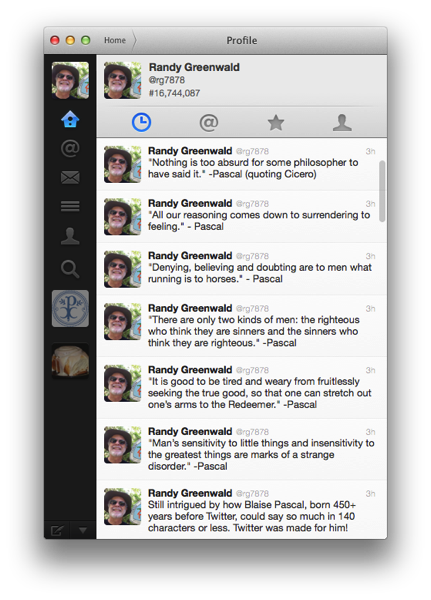Rob Edenfield preached a helpful sermon on doubt this past Sunday at the church I pastor. The reaction to the sermon has shown that many are fearful of sharing their doubts and others (happily) surprised to find out they were not the only ones struggling with doubt. Doubt is real, and real to all honest Christians. Tim Keller has noted that “a faith without some doubts is like a human body without any antibodies in it.” (The Reason for God, page xvi) It’s good to be aware of and to admit our doubts.
But often we do not express our doubts because we are fearful of how others will receive us if they know we are struggling. To ponder how to respond to those giving honest expression to their doubt is a helpful exercise. To that end, I shared with our community group this anecdote from Susan Schaeffer Macaulay, the daughter of noted apologist for the Christian faith, Francis Schaeffer. This story has always been immensely helpful to me. I share it here hoping it will be the same for all of us as we welcome doubt among us.
I started the process of thinking through my beliefs almost accidentally, when I was eleven years old, growing up in Switzerland. What touched it off was a squabble with my two sisters, Debby and Priscilla. We had nearly finished weeding the family vegetable garden, and we were hot, tired, and crabby. As I grew more and more obnoxious in my side of our argument, one of my sisters piped up and said that I wasn’t being a very good Christian example to any villagers passing by.
Without thinking, I said the most shocking thing that came into my head — pretty shocking, at least, when your father is a minister. “Well, I’m not a Christian anyway!” I yelled. “I don’t believe any of it!”
I was received with the dramatic reaction I’d wanted: shocked silence.As we picked up our hoes and walked down the mountain path toward our home, I suddenly felt a tingle of fear creep up my spine. Inside, I had the dizzy sensation of standing on the edge of a dangerous cliff. I had said that I wasn’t a Christian because I’d wanted to shock Debby and Priscilla. But now I wondered: Did I really believe in God? Was the Bible true? Did I have reasons to think so, or had I just blindly accepted what my parents had told me?
The more I thought about it, the worse I felt. I had loved this God of the Bible since I had been tiny. Now all that I’d heard about his teachings and his love seemed to be turning to ashes in my hand.
At the supper table, Priscilla announced, “Susan says she isn’t a Christian.”
By then I didn’t feel like denying her words, even though I could see that my mother looked sad. I was sad, too, for I felt as if I had lost God and his love. I wasn’t sure that there even was a God.
But I was also determined. I couldn’t believe in fairy tales! I had to grow up.
That easily could have been my last day of knowing God was there, and that I was safe in the order he had provided. It could have been the death of my faith.
Or it could have been the end of my progress into thinking as an adult. All it would have taken was a comment like, “Of course you’re a Christian, Susan,” or, “You’re only eleven; you don’t know what you’re saying,” or, “Don’t be foolish — it’s obvious that the Bible is true.’
But something else happened instead. That night when I was ready for bed, alone and quiet in my room, my father came in.
“Let’s talk, Susan,” he said seriously. “Tell me why you said you are no longer a Christian.”
I confessed that I’d first said the words because I was mad. “But as soon as I said it, I was scared,” I explained. “I can’t call myself a Christian! All this time, I’ve only believed it because you and mother told me about it. Now I’ll have to wait and see if it’s true or not. Maybe the other religions are true. Or maybe there isn’t even a God at all!”
There was a moment of silence. I still remember the quiet, friendly companionship in the atmosphere when my dad finally answered me. “Susan,” he said, “those are good questions. I’m glad you’ve asked them.”
What a relief! That dizzy, lonely feeling left me. It was OK to ask questions! It was important for me to find out for myself if what I’d believed was true.
As we talked that night, I discovered that my dad had asked these same questions about God in his own search for answers. Dad opened the door for me into a new adventure. He said that I didn’t have to go through life with a blindfold on my mind to believe in God, merely clinging to hopes and feelings. Neither did I have to throw my beliefs out the window.
If something is true, he explained, you can look at it hard, and think about it, and compare it with other beliefs, and it will stand. It will be reliable.
I decided to do just that.
[From How to Be Your Own Selfish Pig, pages 15-17.]
The full sermon will be found here when posted.





